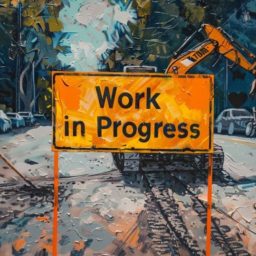
It has been assumed (very reasonably) for many years that enlightened self-government demands a science-literate citizenry. Perversely, however, recent research has shown that all manner of reasoning proficiency – from cognitive reflection to numeracy, from actively open-minded thinking to science literacy – magnifies political polarization on … | Dan Kahan Continue reading Science Literacy Magnifies Political Polarization on Policy-relevant Science Dan Kahan

Abstract This article describes evidence suggesting that science curiosity counteracts politically biased information processing. This finding is in tension with two bodies of research. The first casts doubt on the existence of “curiosity” as a measurable disposition. The other suggests that individual differences in cognition related to science comprehension — of which science curiosity, if … Continue reading Science Curiosity and Political Information Processing Dan M. Kahan, Asheley Landrum, Katie Carpenter, Laura Helft and Kathleen Hall Jamieson (January 2017)

Polarisation vs Democracy | Matthew Taylor This conversation between Matthew Taylor and Rebel Wisdom’s David Fuller covers the destructive impact of new technology, how politics itself is based on bad faith argumentation, and how a cultural shift is needed to reverse course. Posts where this video is embedded Opinion Polarization We are polarized across political, religious, … Continue reading Polarisation Vs Democracy Matthew Taylor

It’s not differences that divide us. It’s our judgments about each other that do. | Meg Wheatley Continue reading It’s Not Differences That Divide Us Meg Wheatley

As long as we think of difference as that which divides us, we shall dislike it; when we think of it as that which unites us we shall cherish it. | Mary Parker Follett Continue reading Difference Unites Us Mary Parker Follett

Abstract This paper compares the debate quality in the plenary sessions of an Irish Citizens’ Assembly and an Irish parliamentary committee to assess the epistemic effects of public deliberation on a contentious subject: abortion. The unusual occurrence of a similar process of detailed discussion on the same topic in different institutions at around the same … Continue reading Measuring Epistemic Deliberation on Polarized Issues: the Case of Abortion Provision in Ireland Jane Suiter, David M Farrell , Clodagh Harris and Philip Murphy

Why we hate our political enemies — and how to stop | Arthur Brooks People: Arthur BrooksArthur C. Brooks American social scientistBooks: Arthur BrooksArthur C. Brooks American social scientistLove Your Enemies — Disagree Better, Not Less Arthur BrooksLove Your Enemies — Say No to Contempt Arthur BrooksLove Your Enemies: How Decent People Can Save America … Continue reading Why We Hate Our Political Enemies — and How to Stop Arthur Brooks

Our society is dangerously polarised. We don’t listen to each other. Too many of us are separating into ideological tribes. This has to stop. The future of our democracy depends on it. This is what the Munk Debates is all about. Opening minds to different points of view. Challenging groupthink. Debating controversial issues with rigour and honesty. | Munk Debates Continue reading Our Society Is Dangerously Polarised Munk Debates

I think we need a truly open-ended conversation with 8 billion strangers, and what makes that hard to do increasingly is a level of political fragmentation and extremism and partisanship born of our engagement with these new technologies. | Sam Harris Continue reading The Challenge of Open Dialogue in an Age of Technological Division Sam Harris (2025)

The Impact of Cognitive Biases in Conversation We Are Not Enemies but Friends—mostly Close Pop-up all posts in this chapter What’s the Vibe? Please be patient as this may take up to a minute to load… Close Introduction In an increasingly complex and interconnected world, the concept of binary bias, also known as binary thinking … Continue reading The Perils of Binary Bias ** Simplifying complex issues into two extreme and opposing categories

Polarization of opinions is becoming more prevalent in today’s society and is creating both unrest at the societal level as well as conflict within small groups with different views. Continue reading Opinion Polarization We are polarized across political, religious, moral, and racial divides

Online platforms personalize content based on past behavior, shaping what information we see. This creates filter bubbles and epistemic bubbles, limiting exposure to diverse perspectives. Recognizing these patterns helps break out of intellectual isolation and engage with broader viewpoints. Continue reading Filter Bubbles, Epistemic Bubbles and Echo Chambers Distort the reality of the world






